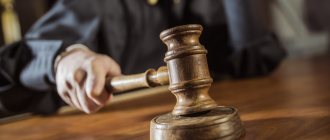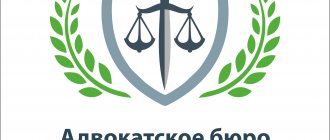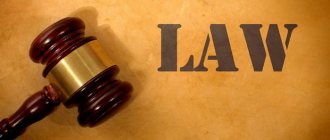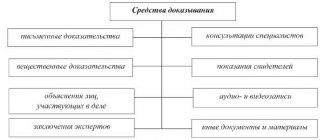Participation of a lawyer in the assessment of evidence: myth or reality?
Law, as provided in Sec. 6–7 of the Code of Criminal Procedure of the Russian Federation, divides those carrying out criminal prosecution and defense into two procedural parties. Their functions are directly opposite: all efforts of the defense are aimed at refuting the charges brought against the person brought to criminal responsibility through a correctly chosen position; challenging the prosecution evidence and presenting evidence of the defendant’s innocence and non-involvement in committing the incriminated acts, as well as other defensive actions. A significant role in this belongs to the lawyer, who is required not only to determine the goals and current tasks of the defense, but also to demonstrate the ability to develop defense strategies and tactics.
The activity of a defense lawyer in court is complex and multifaceted: he does not simply oppose the charges brought against his client, but defends the position of the defendant, supports it with evidence, and then summarizes and analyzes all the material collected during the trial. When discussing a position, analyzing the case materials and the defense’s conclusions, its goal is to actually present to the court ready-made analytical information about the defendant’s innocence, which, if the court agrees with them, can be used as the basis for an acquittal.
When participating in criminal proceedings, a lawyer cannot do without assessing the evidence collected by the prosecution.
By virtue of Art. 88 of the Code of Criminal Procedure of the Russian Federation, each evidence is subject to assessment from the point of view of relevance, admissibility, reliability, and all collected evidence in the aggregate - sufficiency for resolving a criminal case. At the same time Art. 17 of the Code defines the subjects vested with the right to freely evaluate evidence: judge, jurors, prosecutor, investigator, inquirer.
As you can see, the lawyer as a participant in criminal proceedings on the part of the defense as a subject of evidence assessment is not named. Knowing this, many judges, ignoring the position of the defense on the assessment of the evidence presented by the prosecution, cite the following conclusions in their verdicts: “The assessment of the examined evidence was given by the court in the verdict in accordance with the requirements of Art. 17, 87, 88 Code of Criminal Procedure of the Russian Federation. The lawyer's assessment of the evidence presented by the prosecution does not indicate bias in the court's conclusions. The lawyer's arguments relating to the assessment of the prosecution evidence cannot be taken into account by the court for the reason that these arguments relate to the lawyer's re-evaluation of the prosecution evidence, which is not a basis for recognizing the prosecution evidence as irrelevant, inadmissible and unreliable, but in general insufficient to resolve criminal case on the merits"
.
In court decisions, one can also observe the following conclusions of judges, which clearly demonstrate the non-acceptance of the defense’s assessment of the prosecution’s evidence: “The defense’s assessment of the prosecution’s evidence in its meaning boils down to a re-evaluation of the evidence presented by the prosecution, which was assessed by the court in a verdict based on internal conviction, based on the totality of available evidence, as provided for
in Art. 17 Code of Criminal Procedure of the Russian Federation.
The fact that the assessment of the prosecution evidence given by the prosecutor in the judicial debate does not coincide with the assessment of the evidence given by the defense does not indicate a violation by the prosecutor of the requirements of the criminal procedure law and is not a basis for the assessment of the evidence given by the prosecutor to be questioned by the court ."
Thus, the lawyer, being a professional defender of the defendant, is at the same time deprived of legislative powers to influence the process of both proving and the use of prosecution evidence by the court, since only the prosecutor and the judge are vested with such rights in the judicial process.
This is where the reason lies that judges, when passing guilty verdicts, ignore the arguments of the defense, which contain criticism of the prosecution's evidence, and perceive the defense lawyer in the trial as a means of formally ensuring the defendant the right to defense! It is the law, defining the monopoly of evidence assessment for the prosecutor and the judge, that does not prevent a conviction, since the prosecutor presents the prosecution evidence to the court, and he also gives it an appropriate assessment in terms of relevance, admissibility and reliability, and in total - sufficiency for resolving the criminal case, without meeting, in accordance with the legally established procedure for assessing evidence from the defense, mandatory assessments and justifications to the contrary.
I note that although the defense in judicial debates still presents to the court its own analysis and assessment of the prosecution’s evidence (which, as a rule, judges do not prevent it from doing), this is not a legally prescribed procedure, and therefore the lawyer’s analysis and assessment of the evidence is easily ignored by the judiciary for the simple reason that defense arguments, expressed not in favor of the prosecution’s evidence, compete with the legal assessment of the prosecutor, and such competition is not permitted by law.
Consequently, the judge cannot be the arbiter of the choice of the position of the defense or the prosecution, since the law provides for the right to evaluate evidence only for the prosecution. In this regard, the judge will take into account the legally established right of one of the parties to evaluate the evidence and will ignore the assessment of evidence given by the other party, since it is legally deprived of such a right.
In general, it should be noted that a paradoxical situation is emerging in Russian justice. The legislator in Art. 15, 244 of the Code of Criminal Procedure provided that criminal proceedings are carried out on the basis of adversarial and equal rights of the parties, but in fact gave the above-mentioned norms of the law a declarative character in relation to the defense side. There is no real provision for the implementation of the right to prove and evaluate evidence for the defense - such rights at the legislative level were only received by the prosecution in the person of the prosecutor, to whom the judges listen, thereby creating an “accusatory bias”.
I believe that this state of affairs will last until the right of a lawyer to evaluate evidence in a criminal case is ensured at the legislative level.
Currently, the defense side represented by a lawyer, when refuting the accusation brought against the client, is forced to come up with ways to convict the prosecution of presenting poor-quality evidence to the court and influence its assessment by the court in order to not accept the factual circumstances of the case when proving the factual circumstances of the case.
For example, arguing that the prosecutor’s conclusions about the defendant’s involvement in the commission of a crime and his guilt are not confirmed by the evidence considered at the court hearing, the defense must conduct a comparative study of the prosecutor’s conclusions on the factual circumstances of the case and the evidence he identified as confirming these conclusions, and then compare between this data. If they do not coincide, the defense’s arguments that the prosecutor’s conclusions are not supported by the evidence considered at the trial will be obvious.
Meanwhile, the court does not have the right to refer in its verdict to the independent analysis of evidence presented by the defense and its assessment in the same way as is done when presenting the position of the prosecutor in the verdict, since the defense is not defined by law as the subject of the criminal procedural assessment of evidence. The court may agree with the defense position, but in the verdict it must “pass off” it as its own. Only in this case, the justification for the analysis and assessment of the prosecution evidence presented by the defense will have a legally established form of presenting the court’s arguments in the verdict.
The verdict of the court of first instance is made on the basis of the examined evidence, which must be assessed. If the verdict is guilty, the assessment is usually laconic and expressed in one sentence: “Having analyzed and assessed the evidence presented by the prosecution in accordance with Art. 17, 87–88 of the Code of Criminal Procedure of the Russian Federation, the court came to the conclusion that the examined evidence is relevant, admissible and reliable, in the aggregate sufficient to resolve the criminal case on the merits, it fully confirms the guilt of the defendant in committing the crime.”
.
Evaluation of evidence is not only a right, but also the duty of the court when passing a verdict; it cannot be formal. However, established by Art. 17 of the Code of Criminal Procedure, the rules for the free assessment of evidence do not mean that the court is free to draw conclusions regarding the proof of guilt and the defendant’s involvement in the crime, which would allow resorting to a formal assessment of the totality of evidence presented by the prosecution, similar to the one presented in the verdict. In its verdict, the court is obliged to conduct a comprehensive analysis of the examined evidence and give it not a formal, but a comprehensive assessment, describing the important element taken from each evidence that confirms the guilt and involvement of the defendant in the crime. If there is no such thing in the verdict, it cannot be recognized as just.
Control must be established over the assessment of evidence in the verdict. The power to carry out an appropriate review of the conviction, as well as a re-evaluation of the evidence presented in it, in my opinion, should first of all be vested in the legislation on the defense side.
Meanwhile, it should be noted that in the criminal procedural law there is no concept of “revaluation of evidence by the defense”; the term “revaluation” is not used at all in any of its norms. At the same time, judicial practice shows that without re-evaluating the evidence presented by the prosecution, the court is not able to make an acquittal in the case.
Evaluation of evidence is always a subjective opinion, reflecting certain qualities of individual evidence or a group of evidence as a whole. The prosecutor, presenting to the court evidence that, in his opinion, confirms the defendant’s involvement in the crime and his guilt, himself evaluates it during the trial for its relevance, admissibility and reliability. An assessment of the same evidence by a lawyer, which does not coincide with the position of the prosecutor, constitutes a new assessment of the evidence and, in its meaning, means its reassessment. In this case, if the defense does not agree with the evidence presented by the prosecution, not only the evidence itself will be subject to re-evaluation, but also the factual circumstances of the case, which were built by the prosecution on the basis of the evidence collected and presented to the court.
Thus, the analysis, assessment and reassessment of the prosecution evidence brought by the defense must be closely intertwined and associated with challenging the actual circumstances of the case, since without assessment and reassessment of the legal facts it is impossible to come to the conclusion that the conclusions set out in the charge brought against the defendant are not confirmed evidence considered by the court.
Analysis of the content of each evidence allows the court to understand whether the information from this evidence is reliable or doubtful, concrete or abstract, whether it indicates completeness or incompleteness of information about the circumstance being studied, and whether it has a logical connection. The study of evidence through logical analysis is precisely aimed at checking by the court the correctness of factual data and their correspondence to real events. Verification should be carried out not only by analyzing evidence, but also by using synthesis, i.e. comparison of the evidence being verified with others; neither the prosecution, nor the defense, nor the court can do without this. The requirement to compare the evidence being verified with others is directly enshrined in Art. 87 of the Code of Criminal Procedure and constitutes an element of the process of proof in a criminal case.
On the one hand, the process of proof is impossible without evaluating the evidence, which is one of its mandatory elements, and verifying it by comparing it with other evidence available in the case, as well as identifying their sources, obtaining other evidence confirming or refuting what is being verified; on the other hand, a lawyer According to legislatively established standards, he is not able not only to evaluate, but also to verify evidence. This deprives him of any opportunity to participate in the trial on an equal basis with the prosecutor and challenge the charges brought against the defendant.
Evaluation of evidence is a mental activity consisting of analysis and synthesis of the content and form of evidence and culminating in a conclusion, as provided for in Part 1 of Art. 88 Code of Criminal Procedure. Thus, the need to use analysis, synthesis and evaluation of evidence to reach a verdict is obvious. Only in the synergy of these three components of the process of proof will the verdict meet the tasks and goals of justice and indicate its validity and motivation.
The activity of verifying evidence, carried out through its analysis and synthesis, ending with an assessment of the entire body of evidence, should lead the court to final conclusions and answers to those raised in Art. 299 and 302 of the Code of Criminal Procedure issues. It is the assessment of the entire body of evidence that is the most crucial moment in the court’s activities when passing a verdict.
On the issue of investigative errors and their judicial assessment
The task of the preliminary investigation and trial is to consider all possible versions of the crime committed in order to establish the objective truth. Thus, in the Resolution of the Plenum of the Supreme Court of the Russian Federation dated April 29, 1996 No. 1 “On the judicial verdict” it is said that when rendering a sentence “the courts should proceed from the fact that a conviction must be based on reliable evidence, when all versions of the case have been investigated, and existing contradictions have been clarified and assessed.”
Author: Sidorov A.S.
The reason for writing this article was one of the cases of blatant unprofessionalism of the investigator, whose mistakes were not properly assessed by the court, which, in the author’s opinion, led to the illegal and unfounded conviction of citizen K.
Since, unfortunately, such situations are not isolated in investigative and judicial practice, I will allow myself to share the results of my assessment of the circumstances of this case.
The plot of the case is as follows.
Citizen T. Tobolsk District Court of the Tyumen Region was convicted of committing a crime under Part 3 of Article 264 of the Code of Criminal Procedure of the Russian Federation (“Violation of traffic rules and operation of vehicles, resulting in the death of a person through negligence”).
The reason for bringing T. to criminal liability was a traffic situation related to the fact that on the Tyumen-Surgut highway, the victim P., while driving a car, drove into oncoming traffic, and, having allowed her car to collide with two other cars, died. According to the prosecution, this happened as a result of the fact that another driver, accused T., also driving a passenger car, as a result of overtaking a truck moving in the same direction, drove into P.’s lane, thereby interfering with the movement of the victim’s car.
Accused T. did not admit his guilt, because believed that he did not actually commit the act charged with him.
However, the court did not take the defense’s arguments into account, and, as noted above, a guilty verdict was passed against T..
What were the defense's arguments based on? This is what I would like to tell the reader about, since I was directly involved as a defense attorney at all stages of the criminal process in this case. And in order not to get too sophisticated in theoretical research, I will further cite extracts from my cassation appeal in defense of T. (I do not mention the names and surnames of the participants in the proceedings in the case). At the same time, due to the limited scope of the article, we will not talk about all the conclusions of the court that are not confirmed by the evidence considered at the court hearing.
So. “The court in its verdict, as evidence of T.’s guilt in committing a crime, refers to the flash card seized during the seizure from witness B., the protocol of its examination by the investigator, as well as the inspection of the specified flash card and viewing of the video recorded on it during court session.
At the same time, when assessing this evidence, the court did not take into account that the protocol for examining the video recording contained the investigator’s conclusions, which did not correspond to the traffic situation recorded on it, as well as other evidence in the case.
Thus, in the video inspection protocol it follows that at the moment an oncoming passenger car was passing another passenger car, it was recorded that “the driver of the truck moved to the right side of the road to prevent an accident.”
However, during the viewing of this video in court, it was established that this circumstance was not true. In addition, the driver of the “cargo vehicle” has not been identified or questioned in the case in order to establish whether he actually attempted to pull over to the right side of the road, as the investigator claims, and if so, for what purpose.









